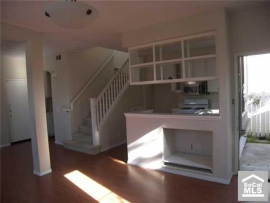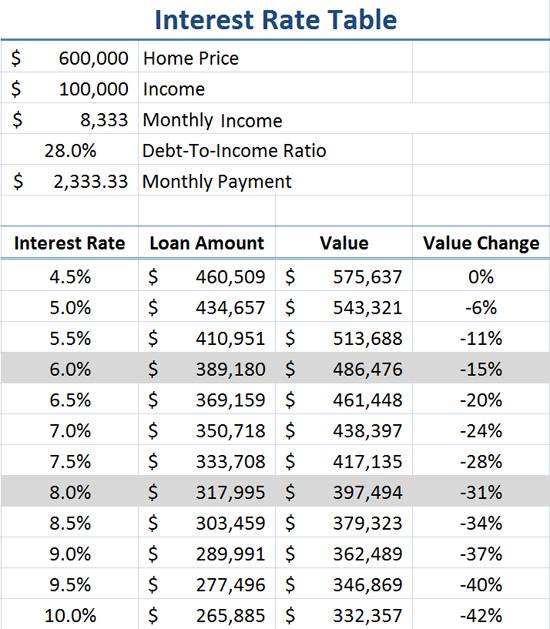The published figures for negative equity doesn't account for necessary sales discounts, sales costs, and realtor commissions. The true negative equity rate is much worse.
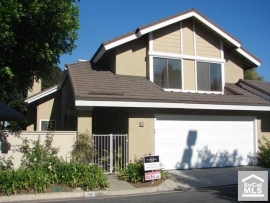
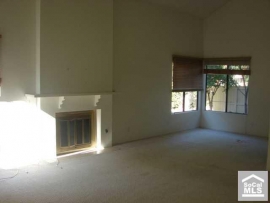
Irvine Home Address … 38 WILLOWGROVE Irvine, CA 92604
Resale Home Price …… $559,900

Well I know, I miss more than hit
With a face that was launched to sink
An' I seldom feel, the bright relief
It's been the Worst Day Since Yesterday
If there's one thing I have said
Is that the dreams I once had, now lay in bed
As the four winds blow, my wits through the door
It's been the Worst Day Since Yesterday
Fallin' down to you sweet ground
Where the flowers they bloom
It's there I'll be found
Hurry back to me, my wild calling
It's been the Worst Day Since Yesterday
Flogging Molly — The Worst Day Since Yesterday
Almost a quarter of all homeowners with a mortgage are underwater. It's a staggering number. But the effective home equity is worse than the officially reported figures would suggest. Since selling a house has a cost paid by the seller, 6% to 10% of home equity is pulverized to grease the wheels of commerce.  That being the case, a prolonged period of stagnant home prices immobilizes the population. With no equity to pay the transaction costs of leaving, homeowners with less than 10% equity are effectively underwater.
That being the case, a prolonged period of stagnant home prices immobilizes the population. With no equity to pay the transaction costs of leaving, homeowners with less than 10% equity are effectively underwater.
IMO, the actions taken by lenders, the Federal Reserve and our government to create an artificial bottom in house prices is going to drag this problem out for years. Ultimately, not letting home prices fall will be viewed as a mistake.
When a market bottoms and prices start moving up slowly but consistently, the buyers during the bottoming phase begin to have equity in their properties. Once prices rise off the bottom, sellers with newfound equity raise their bids on prime properties, and the move-up market adds to the sales volumes. It is the additional demand of move-up buyers with equity that lifts the market out of the doldrums.
By creating the false bottom at a price higher than what the market would have, the powers-that-be prevented the formation of a true and durable bottom, and none of the buyers during the period of the false bottom will have the equity to get out. We trapped several more years worth of buyers in their homes and delayed their move-up purchase.
Buyers who are selling their current house to obtain another — move-up buyers — usually form 25% of the market activity. Today it is effectively zero. Thanks to the manipulations of the market, it will be effectively zero for several more years. In a market suffering from sales rates 30+% below historic norms, the move-up buyer segment is urgently needed. Unfortunately, these buyers cannot be manufactured.
Negative Home Equity Is Worse Than You Think
By: Diana Olick — Wednesday, 15 Dec 2010
There was a lot of talk last week about how negative equity, now at 22.5 percent of all homes with mortgages, according to CoreLogic [CLGX 18.20 -0.06 (-0.33%) ], will affect the housing recovery. Then mortgage rates popped up to 5 percent overnight, thanks to the 10-year Treasury, and more folks voiced concern over today's potential home buyer and his or her ability to take advantage of this low-priced housing market.
Owing more on your mortgage than your home is currently worth doesn't necessarily mean you can't afford your monthly mortgage payment or that you're going to go about your day any differently, other than feeling a little financially depressed. While it may make some more likely to walk away or "strategically default," most won't.
It does mean that you can't use your home to pay for anything, like a new car or your kids' college tuition, and it does mean that you can't move up to a nicer home without having to take a hit by paying off your mortgage with whatever stash of cash you have. Now here's the issue: The move-up buyer (which is the market we're counting on now to get us out of this mess, given that the home buyer tax credit pulled a lot of first-time buyer demand forward to the beginning of 2010). A significant number of move-up buyers, even if not underwater on their mortgages now, may be in a negative equity position when it comes to buying a new home.
Let me just preface that if you happen to be wealthy independent of your home, or a relative just died and left you a sizeable chunk of cash, this doesn't apply to you. Now here goes. Mortgage expert Mark Hanson makes an excellent point and did some math, which I want to share:
"In order to sell and re-buy, a homeowner must receive enough proceeds from the sale to 1) pay off the mortgage(s), 2) pay a Realtor 5-6 percent and 3) put a 3.5-20 percent down payment on a new vintage loan," begins Hanson, and those alone may be too financially off-putting in today's economy for many potential buyers.
"Effective negative-equity is the big weight on housing that has no easy or quick cure," continues Hanson.
His math:
* Real effective negative-equity as it pertains to house selling and buying starts at:
* <9.5% positive equity for FHA repeat buyers (6% Realtor fee + 3.5% down payment)
* <16% positive equity for Fannie/Freddie repeat buyers (6% Realtor fee + 10% down payment)
* <26% for Jumbo repeat buyers (6% Realtor fee + 20% down payment)
When lowering Corelogic's negative equity threshold to 75% on CA mortgages, 53% are effectively underwater.
And I would add to Hanson's logic, that CoreLogic also noted that an additional 2.4 million borrowers are in a "near-negative equity" position, with less than 5 percent equity in their homes. That puts them out of the move-up market as well.
With rising mortgage rates, even if they don't go much higher, the "effective" negative equity rate of the move-up buyer will impact recovery, slowing sales as more buyers/demand are priced out of the market.
The negative equity situation is a lead weight on the mid to high end of the local housing market. Most of the people who can afford to buy these houses already have, and they are locked up in that 53% of California mortgages effectively underwater (for 20% down buyers). The effect of so much mortgage equity withdrawal is to leave so many potential buyers are hopelessly underwater on their existing mortgages that they are removed from the buyer pool. It is only a matter of time before many of these people become supply when they sell, but they will create no demand as they move to the rental pool.
18 months of squatting and 18 months in shadow inventory
- Today's featured property was bought on 3/2/2006 near the peak for $745,000. The owner used a $633,250 first mortgage and a $117,750 down payment.
- They refinanced on 6/25/2007 with a $632,000 Option ARM and opened a $78,000 line of credit.
- They quit paying in late 2007 or early 2008. They did not pay for more than 9 months.
Foreclosure Record
Recording Date: 01/08/2009
Document Type: Notice of Sale
Foreclosure Record
Recording Date: 06/06/2008
Document Type: Notice of Default
The property was taken back by the bank on 6/11/2009 where it has rotted in shadow inventory for 18 months until it was listed for sale.


Irvine Home Address … 38 WILLOWGROVE Irvine, CA 92604 ![]()
Resale Home Price … $559,900
Home Purchase Price … $745,000
Home Purchase Date …. 3/2/2006
Net Gain (Loss) ………. $(218,694)
Percent Change ………. -29.4%
Annual Appreciation … -5.9%
Cost of Ownership
————————————————-
$559,900 ………. Asking Price
$111,980 ………. 20% Down Conventional
4.87% …………… Mortgage Interest Rate
$447,920 ………. 30-Year Mortgage
$114,223 ………. Income Requirement
$2,369 ………. Monthly Mortgage Payment
$485 ………. Property Tax
$0 ………. Special Taxes and Levies (Mello Roos)
$93 ………. Homeowners Insurance
$337 ………. Homeowners Association Fees
============================================
$3,285 ………. Monthly Cash Outlays
-$403 ………. Tax Savings (% of Interest and Property Tax)
-$551 ………. Equity Hidden in Payment
$210 ………. Lost Income to Down Payment (net of taxes)
$70 ………. Maintenance and Replacement Reserves
============================================
$2,610 ………. Monthly Cost of Ownership
Cash Acquisition Demands
——————————————————————————
$5,599 ………. Furnishing and Move In @1%
$5,599 ………. Closing Costs @1%
$4,479 ………… Interest Points @1% of Loan
$111,980 ………. Down Payment
============================================
$127,657 ………. Total Cash Costs
$40,000 ………… Emergency Cash Reserves
============================================
$167,657 ………. Total Savings Needed
Property Details for 38 WILLOWGROVE Irvine, CA 92604
——————————————————————————
Beds: 3
Baths: 1 full 2 part baths
Home size: 2,040 sq ft
($274 / sq ft)
Lot Size: n/a
Year Built: 1978
Days on Market: 26
Listing Updated: 40505
MLS Number: S639895
Property Type: Condominium, Residential
Community: Woodbridge
Tract: Gr
——————————————————————————
According to the listing agent, this listing is a bank owned (foreclosed) property.
Large attached single family home with granite counters in kitchen, cozy fireplace in living room, large walk-in closet in master bedroom, lovely arched doorways, high vaulted ceilings and a private rear courtyard with in-ground spa. Needs a little TLC, but has great potential! Close to schools, parks and North Lake!
.


.jpg)



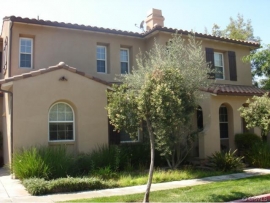
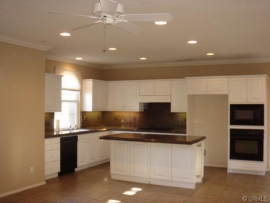






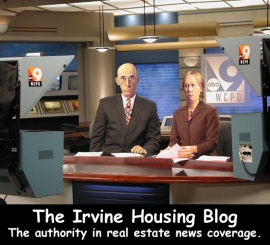

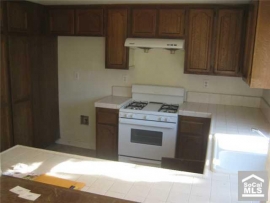






.jpg) .
.

.jpg)
 It's a good time to buy if you believe a cartel of lending interests that control the sale of millions of properties can hold price levels above what people can realistically afford and divest themselves of all their inventory. If you believe the banking cartel can do this, then we are near enough to the bottom that buying now doesn't hurt. On a nominal basis, it may not, but on an inflation-adjusted basis, it is not great planning to tie up money in an asset that treads water for 10 years while inflation ravages the buying power of the currency.
It's a good time to buy if you believe a cartel of lending interests that control the sale of millions of properties can hold price levels above what people can realistically afford and divest themselves of all their inventory. If you believe the banking cartel can do this, then we are near enough to the bottom that buying now doesn't hurt. On a nominal basis, it may not, but on an inflation-adjusted basis, it is not great planning to tie up money in an asset that treads water for 10 years while inflation ravages the buying power of the currency.

